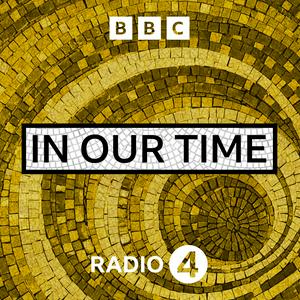Catherine of Aragon
Melvyn Bragg and guests discuss Catherine of Aragon (1485-1536), the youngest child of the newly dominant Spanish rulers Ferdinand and Isabella. When she was 3, her parents contracted her to marry Arthur, Prince of Wales, the heir to the Tudor king Henry VII in order to strengthen Spain's alliances, since Henry's kingdom was a longstanding trade partner and an enemy of Spain's greatest enemy, France. For the next decade Catherine had the best humanist education available, preparing her for her expected life as queen and drawing inspiration from her warrior mother. She arrived in London to be married when she was 15 but within a few months she was widowed, her situation uncertain and left relatively impoverished for someone of her status. Rather than return home, Catherine stayed and married her late husband's brother, Henry VIII. In her view and that of many around her, she was an exemplary queen and, even after Henry VIII had arranged the annulment of their marriage for the chance of a male heir with Anne Boleyn, Catherine continued to consider herself his only queen.With Lucy Wooding
Langford Fellow and Tutor in History at Lincoln College, University of Oxford and Professor of Early Modern History at Oxford Maria Hayward
Professor of Early Modern History at the University of SouthamptonAnd Gonzalo Velasco Berenguer
Lecturer in Global Medieval and Early Modern History at the University of BristolProducer: Simon Tillotson
In Our Time is a BBC Studios Audio ProductionReading list:Michelle Beer, Queenship at the Renaissance Courts of Britain: Catherine of Aragon and Margaret Tudor, 1503-1533 (Royal Historical Society, 2018)G. R. Bernard, The King's Reformation: Henry VIII and the Remaking of the English Church (Yale University Press, 2007)José Luis Colomer and Amalia Descalzo (eds.), Spanish Fashion at the Courts of Early Modern Europe (Centro de Estudios Europa Hispanica, 2014), especially vol 2, 'Spanish Princess or Queen of England? The Image, Identity and Influence of Catherine of Aragon at the Courts of Henry VII and Henry VIII' by Maria HaywardTheresa Earenfight, Catherine of Aragon: Infanta of Spain, Queen of England (Penn State University Press, 2022)John Edwards, Ferdinand and Isabella: Profiles In Power (Routledge, 2004)Garrett Mattingley, Catherine of Aragon (first published 1941; Random House, 2000)J. J. Scarisbrick, Henry VIII (first published 1968; Yale University Press, 1997)David Starkey, Six Wives: The Queens of Henry VIII (Vintage, 2004)Giles Tremlett, Catherine of Aragon: Henry's Spanish Queen (Faber & Faber, 2011)Juan Luis Vives (trans. Charles Fantazzi), The Education of a Christian Woman: A Sixteenth-Century Manual (University of Chicago Press, 2000)Patrick Williams, Catherine of Aragon: The Tragic Story of Henry VIII's First Unfortunate Wife (Amberley Publishing, 2013)Lucy Wooding, Henry VIII (Routledge, 2009)
